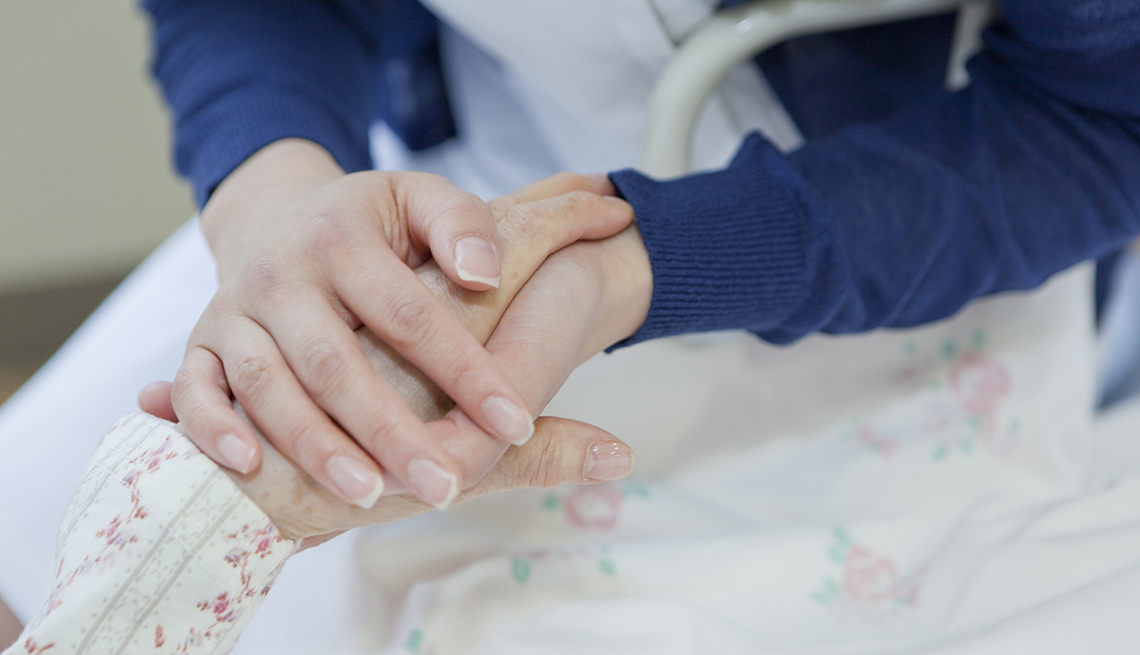AARP Hearing Center
I am a secret caregiver.
I'm a caregiver because I care for my aging mother; secret, because no one knows she is fighting for her life.
Like many immigrant Asians from an earlier generation, the word “cancer” strikes fear. It's bad luck to even say the word.
You would think that since my mother went to medical school, she could speak openly, candidly and rationally about it, and she can — when it's someone else's. Friends seek her medical advice, but she still has not told anyone outside of her primary caregivers (doctors and children) that she herself is preparing for chemotherapy after many surgeries and different types of radiation treatment.
Becoming a caregiver was a sneaky process for me. It began with minor tasks: helping with some translations, making doctor's appointments and dealing with the pharmacy.
Then she realized there was something serious going on, but she would only drop hints cryptically in Mandarin Chinese, such as “wǒ juédé yǒudiǎn qíguài” (我覺得有點奇怪), ("I feel a little strange.") After several months of my trying to understand what was happening, I got frustrated and angrily demanded that she allow me to accompany her to her next doctor's visit. She argued with me for a while before she finally relented.
Her doctor (also her medical school classmate) took one look at me and said in Chinese: “nǐ de māmā bù tīng wǒ de huà” (你的媽媽不聽我的話), ("Your mother doesn't listen to me.") He showed me test and biopsy results, lab reports and images that were startling even for someone like me, with no medical background.


































































